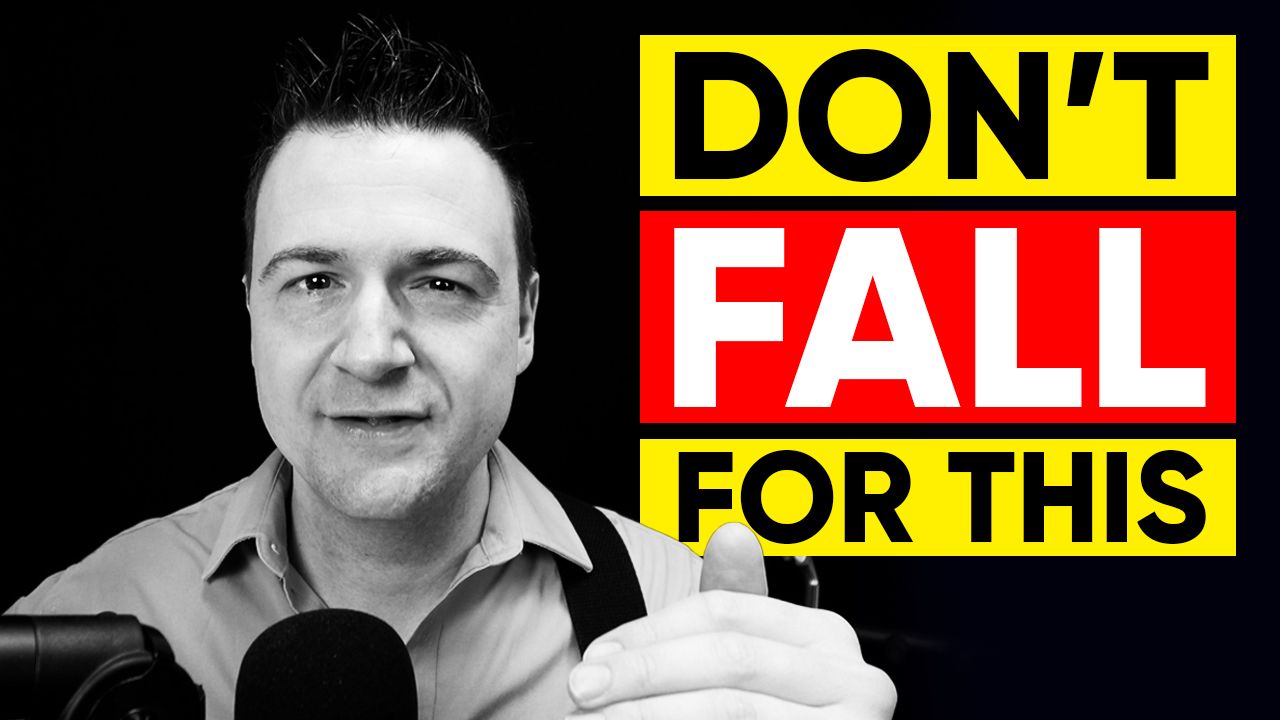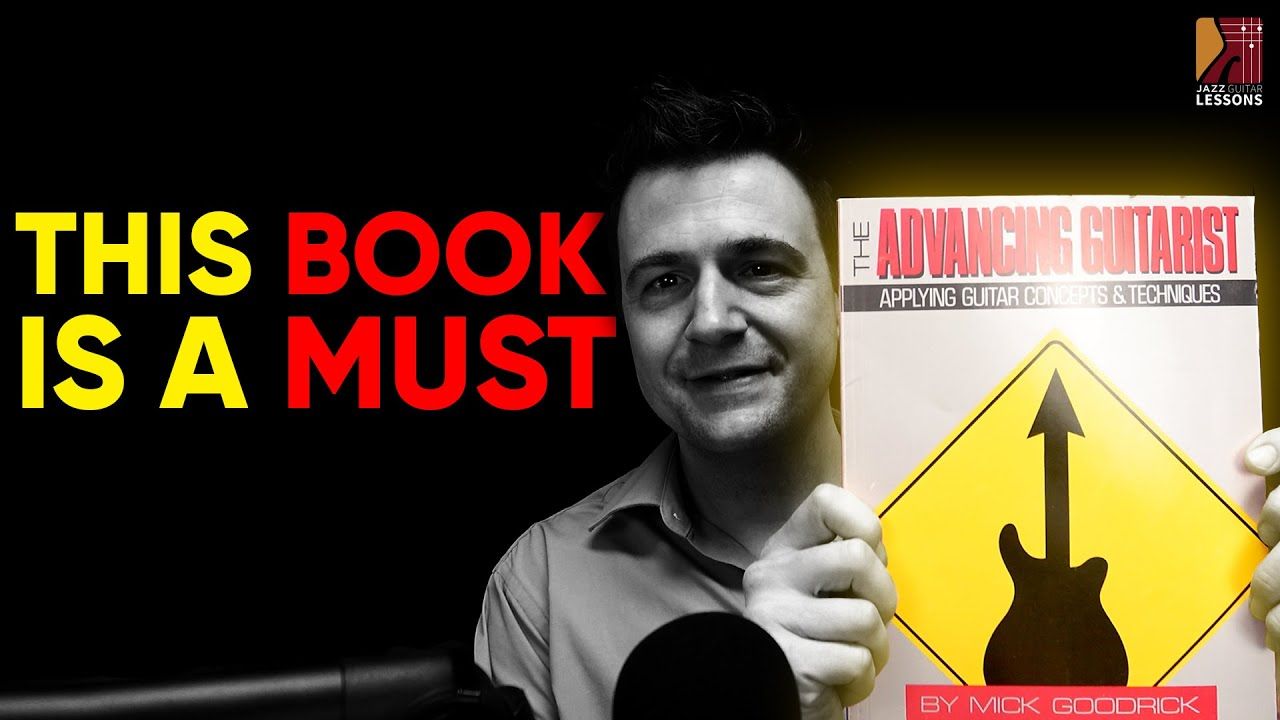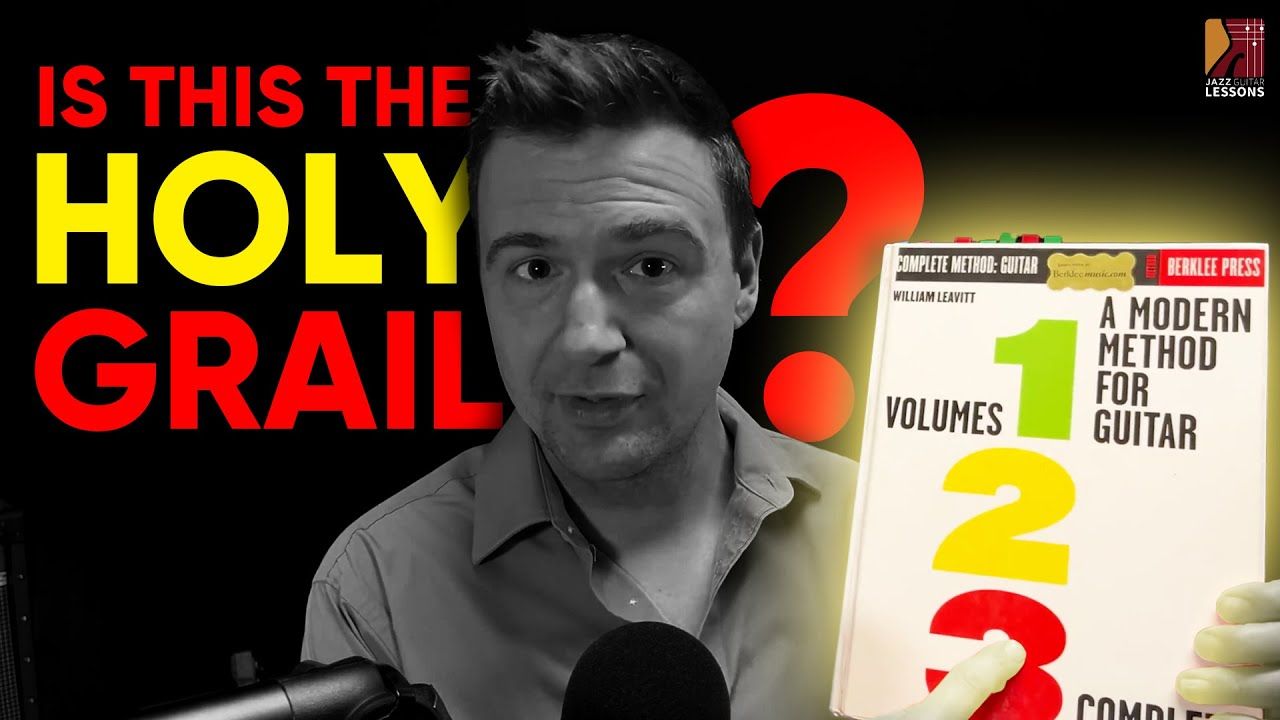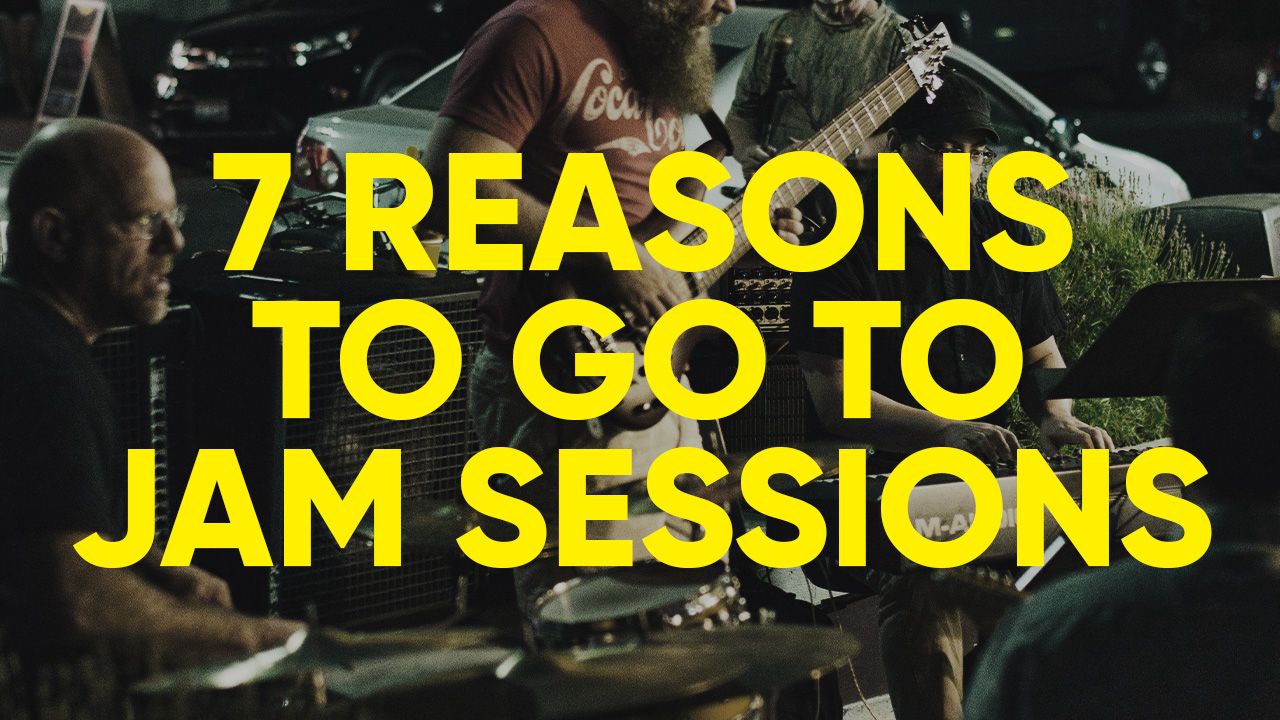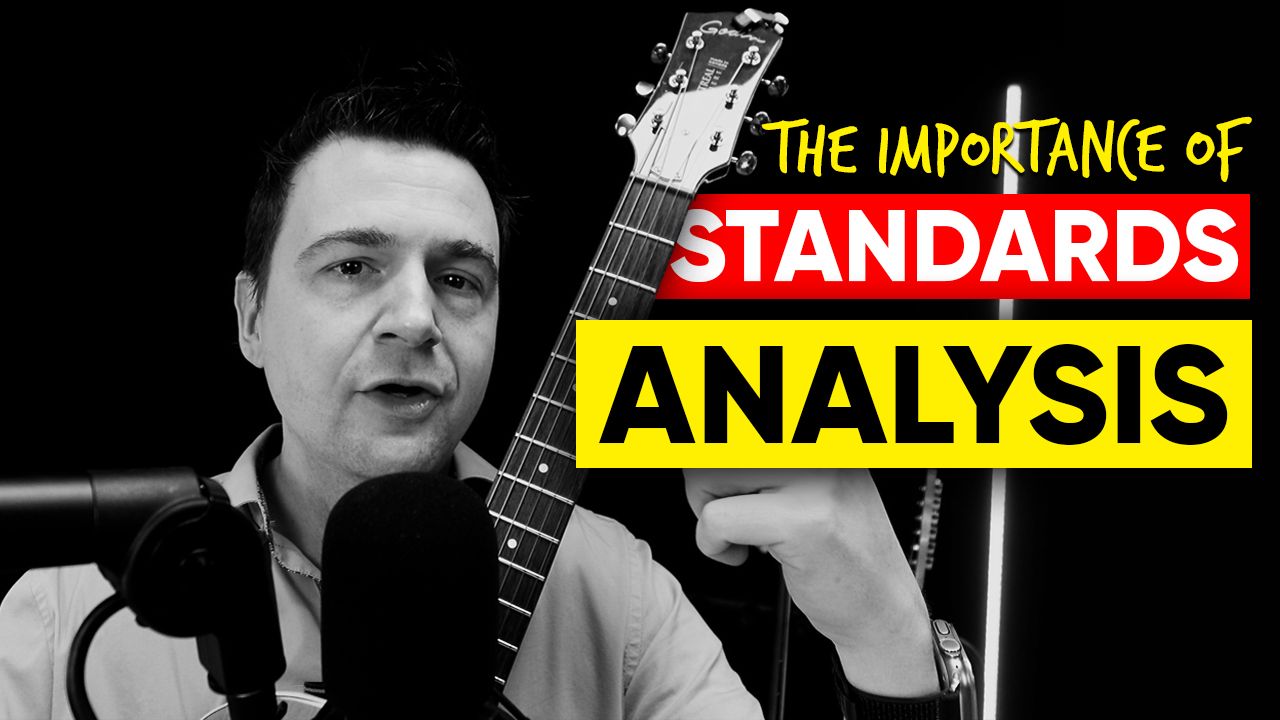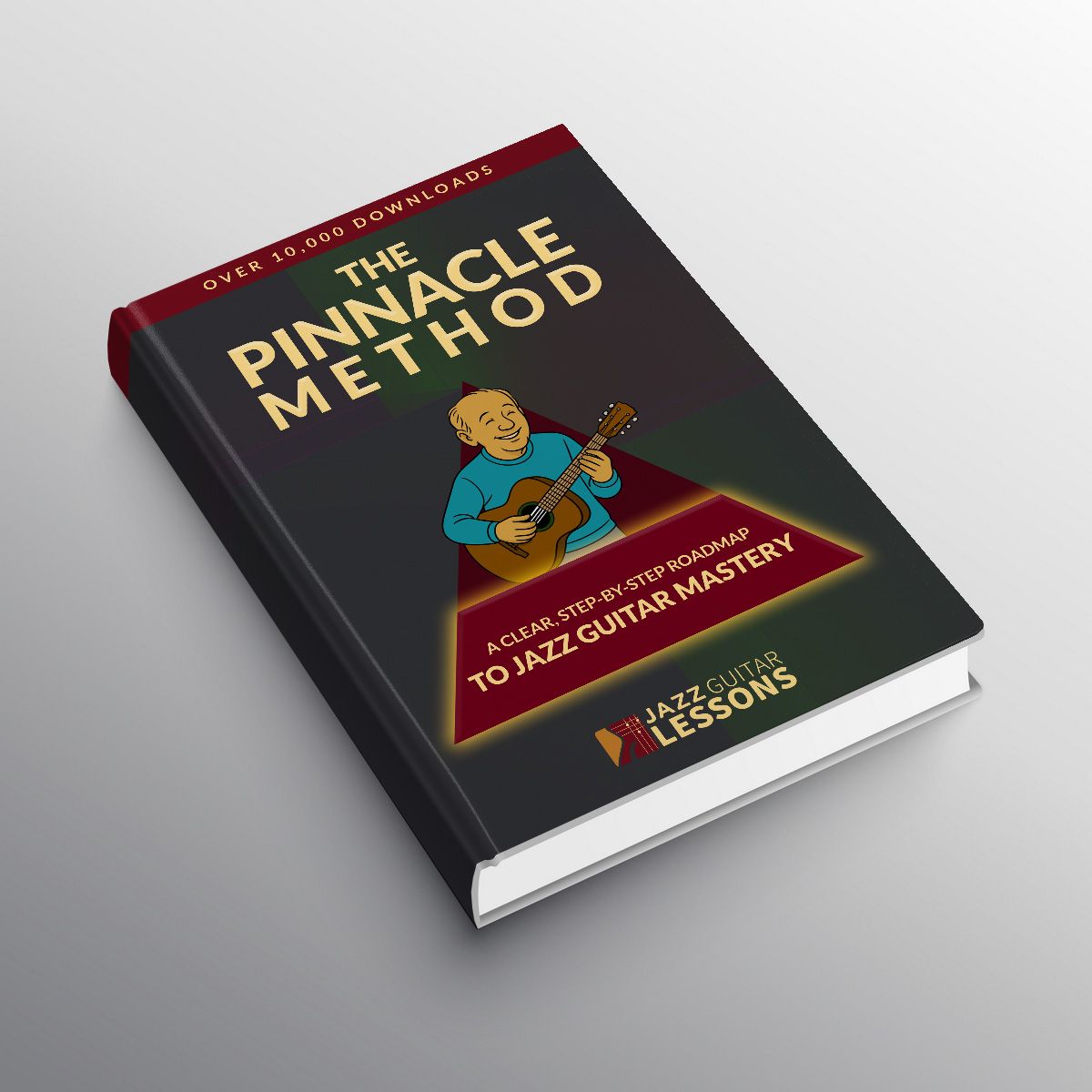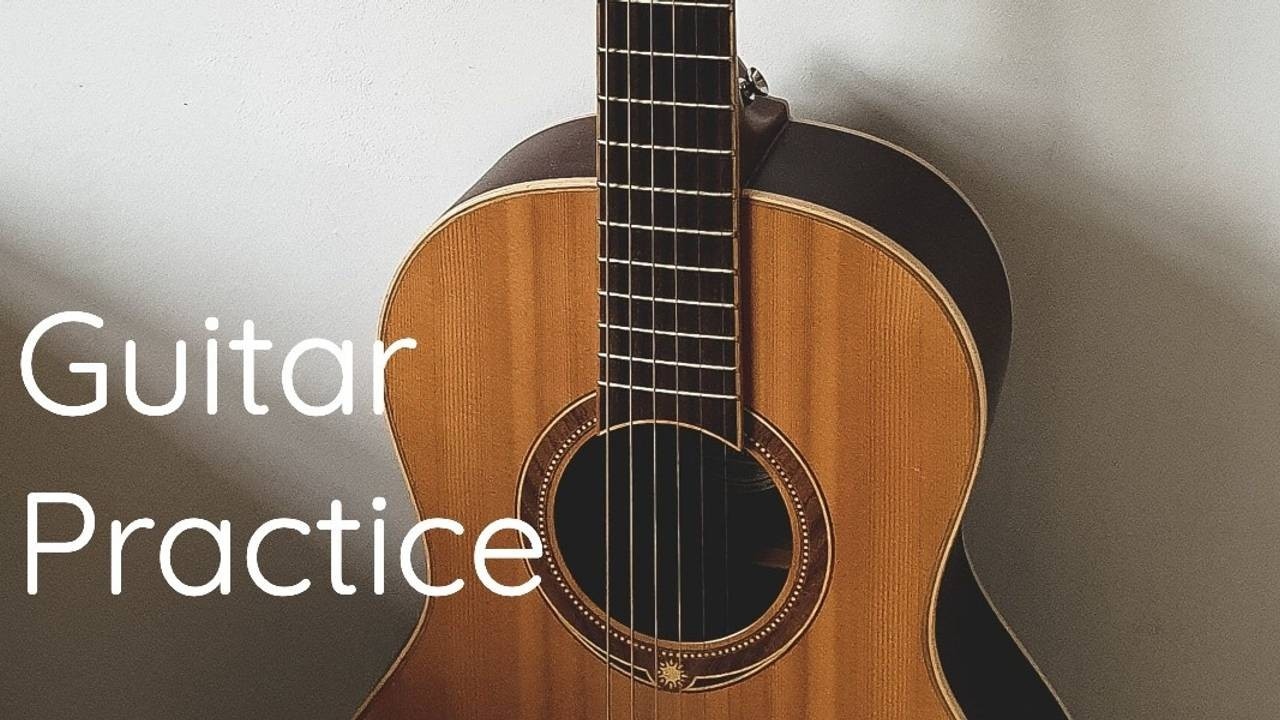
Jazz Guitar Practice
Nov 18, 2020How to Make the Most of Your Practice Time
Practicing is something we all have to face one day or another. Heck, even Miles Davis practiced his instrument at some point! Like most activities (walking, driving, sports, dancing, cooking, etc.) music has a "learning curve." Jazz guitar is no exception.
Here are the tips we will go through to help you build a good practice routine.
- Playing vs. Practicing
- Physical Organization
- Goals and Planning
- Material
- Practice Time
- Goals and Planning (encore)
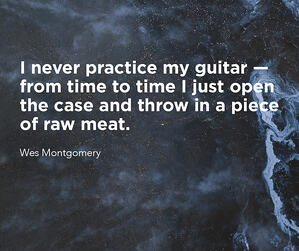
If someone's telling you that they found a "shortcut" or that they got "the secret" to avoid guitar practice RUN (don't walk) in the other direction! In short, practicing is simply the preparatory steps required for the performance of music. In jazz, we also prepare for spontaneous musical creation. Improvisation is soooooo rewarding it's addictive! (-:
"By failing to prepare, you are preparing to fail."
Benjamin Franklin
1 - Prelude (Playing -vs- Practicing)
There's a difference between focused practicing and performing. In practice, attention is given to a specific set of parameters. For example, practicing a scale you'll try to sound the right notes in the right order.
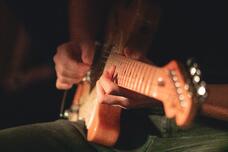 In performance however, the focus is on what's happening at that very moment. Ideally, the player is not trying to control everything and the performance flows naturally. There's less thinking and more instincts. The advice here is not to mix them up!!! (for now at least)
In performance however, the focus is on what's happening at that very moment. Ideally, the player is not trying to control everything and the performance flows naturally. There's less thinking and more instincts. The advice here is not to mix them up!!! (for now at least)
When performing, avoid sounding like you are just practicing
On the other hand, you may wish to "perform" by yourself in a practice session and that is O.K. It's much like a "crowd-less performance" and it won't hurt. All I'm saying is: please avoid the "on stage practice session"! Always be aware of the relationship between playing and practicing.
To conclude: In practice, find new means of expression, learn new repertoire and improve your technique in order to perform better in the future...
2 - Physical Organization
The guitar practice environment is as much (if not more) important than the activity itself. Practicing in the same room most of the time is the key. The ideal is to have a dedicated "practice space" for your music, if you can. The environment should contain every object you could use during guitar practice. For example:
- Guitar (and amplifier if needed)
- Music stand and guitar stand if needed
- Tuner, metronome and patch chords
- Guitar strap and picks
- Timer or watch
- CD/tape/vinyl player (and/or computer)
- Albums you are currently transcribing from
- Binder (with staff and regular paper)
- Pen, pencils and eraser
- Books you are using (fake books, charts, methods, etc.)
- Water (last but not least!)
Having everything in one place is essential to focused jazz guitar practice. Avoid getting up to get "that book" or "that CD" or "the darn tuner".
The environment influences practicing and helps in creating an habit of practicing. It takes only 3 weeks to develop an habitual behavior. We can compare guitar practice to sleeping or eating habits. Set the ball rolling and practicing will become almost automatic.
3 - Goals and Planning
In order to move forward (improvement), you need a direction (goal). It's essential to know why you practice guitar! Ask yourself:
How am I sounding right now? How would I like to sound in the future?
 Write the answers down on two separate sheets of paper. Answer the first question honestly acknowledging reality. List your strengths and weaknesses. Acceptance leads to better playing. Answer the second question with your own personal ideal. What's a "perfect" jazz guitarist to you? Make a list of many aspects.
Write the answers down on two separate sheets of paper. Answer the first question honestly acknowledging reality. List your strengths and weaknesses. Acceptance leads to better playing. Answer the second question with your own personal ideal. What's a "perfect" jazz guitarist to you? Make a list of many aspects.
With the two lists in hand, decide on the weaknesses that you want to make intro strengths immediately. Choose only the most urgent matters. Obviously, we all want all of our weak points to turn strong yesterday. :-)
So, basically, you are now using your ideals as a point of reference to set goals! Remain positive towards improving certain areas. The whole process will be very enjoyable if you keep a smile on your face! The fact that you now acknowledge your strengths, weaknesses and goals will take you to new heights.
Just as an experiment, I suggest you write everything down. I've been keeping a log for a long time; I find it amazingly helpful. The log is very personal because everyone has their own way of keeping track. Find yours and start "logging" today! On Mac, I use either EverNote (free), Memoir (paid) or MacJournal (paid).
4 - Material
This is the part where you decide what you will practice in order to attain goals. It can consist of anything from sight-reading Bach to transcribing Herb Ellis. Material can also be conceived in the form of exercises. The musical material to be practiced differs from person to person, and that's okay.
 Guitar practice is strictly personal and depends a great deal on the level, taste and general direction of each player. No one knows exactly what you should practice to achieve X or Y result. YOU decide! (-:
Guitar practice is strictly personal and depends a great deal on the level, taste and general direction of each player. No one knows exactly what you should practice to achieve X or Y result. YOU decide! (-:
Since there's a tremendous amount of information (things to practice) out there, you are the judge. We'll never plow through even 1% of all music so we have to be selective and choose wisely. Here are general guidelines to help you pick (or create) what you'll be covering in you jazz guitar practice sessions:
- Balance Different Areas
Cover a few, but not too many, aspects of playing when you practice. It's no good to play only scales six month in a row... and it's no good to practice 52 different things each day! Balance is the key. (For example practice comping, scales and repertoire.) - Have Complimentary Approaches
Attack the same problem from different angles. Be creative and keep the goal in mind. There's at least ten ways to approach any musical difficulty. Try not to be "exclusive" when choosing what material you practice to overcome an obstacle. Create your own exercises when needed, which leads me to... - Be Your Own Teacher
Some books and teachers have great practice suggestions. In the end, I think that's what worked for them that they're trying to teach you. Create your own exercises to overcome musical obstacles. - Learn Tunes
Always go over at least a little bit of repertoire on a regular basis. It can be learning new tunes or perfecting known standards. Create a list of tunes you know (memorized) and work with it. Your jazz guitar practice will raise your performance level ...and what's played during a performance exactly? (Tunes!!!) Thank you.
So, did you pick some material to practice? You know exactly what to do now to get to your goals. Congratulations! Let's see how you should apply this to real life jazz guitar practice sessions.
5 - Practice Time
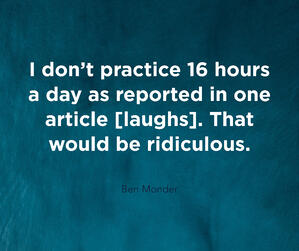
This is usually where most of my students have difficulties. Here again, it's necessary to perceive reality as it is. You will NOT be practicing 8 hours each day for the next 10 years! Well... most of us don't anyways. On the other hand, you are most likely to give a steady 30-45 minutes average per day. It's more than enough to make huge progress... if your time is used properly! (-;
Here are points to keep in mind to manage your jazz guitar practice time:
- Focus
Make your guitar practice time 110% focused. No distractions. The value of 30 minutes of focused practicing is greater than a whole day of mere noodling. Use a timer. - Practice "everything" in each session
According to your goals, try to play through all your chosen material each time you practice. If there's an item on your list that you didn't touch for a week, it means that you have to much on your plate. - Plan each session
Decide how much time you will honestly spend in focused practice before even touching the guitar. With this set amount of time in mind, plan the material you'll cover. Divide each session in small chunks of time to go through "everything". For example: I have 5 items on my list and 75 minutes to practice. I'll do 20, 20, 5, 15, 15 minutes. - Warm-up
Pace the practicing material logically. I like to start with some slow scales and then I improvise on a tune. It prepares my brain and fingers to tackle my routine. At the end of the session, I also improvise but on a tune that's more challenging for me. Experiment and find what kind of warm-up works for you. Create your own session "starters"! - Practice Regularly
It's best to do it everyday even if it's for a short session. Never try to "catch up on the weekend"... trust me, it doesn't work!
Go ahead and try daily guitar practice sessions for the next few weeks. Take note of what works for you. Write everything down so you can measure and make necessary adjustments. Then come back and adjust with different goals, as needed.
6 - Goals and Planning (encore)
Keep this jazz guitar practice process in mind as weeks and months go by. I can keep most exercises (and their variations) in my routine for years at a time! Improvement only comes from slow and steady growth.
Come back often, re-visit and adjust your practice environment, your goals, your material and your practice time. Write casual reports on the results you achieve on guitar. Do it often! Acknowledge and improve. Once again, a journaling software works great for this kind of music diary concept.
I also encourage you to personalize my suggestions as much as you can. Experiment and follow your instincts. Discovering your own "improvement mechanisms" is far more important than following any specific method. But more importantly: keep an eye on the prize and don't fool yourself. Look at your skills in a detached manner; don't let the ego get in the way.
And last but not least:
- Record yourself
Pocket recorders are accessible and cheap nowadays. Listen to your taped practice sessions, rehearsals and performances. Be a critic but try not to judge. Just listen to your playing objectively. While listening to my gigs, I often get ideas about what I could improve in my playing. As always, write it down. - Live Performance
Playing live or attending jam sessions is a great "reality check" most of the time. Do it often. I personally discovered most of my own weaknesses "under fire"... at a jam!
Good luck and Have Fun!
**(Notes from the editor)**This post was updated 11/20/2020. (Syntax, images and feature updated.)


